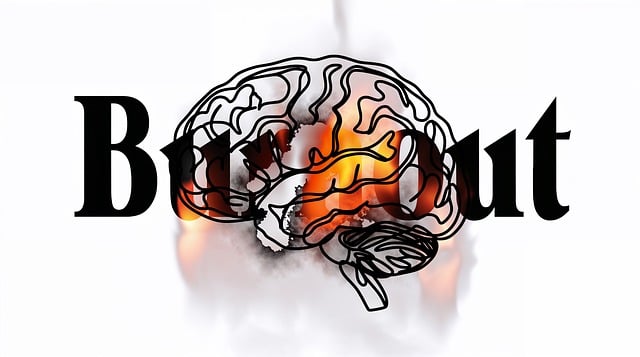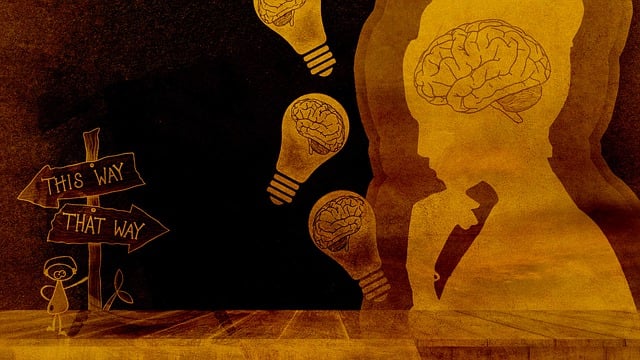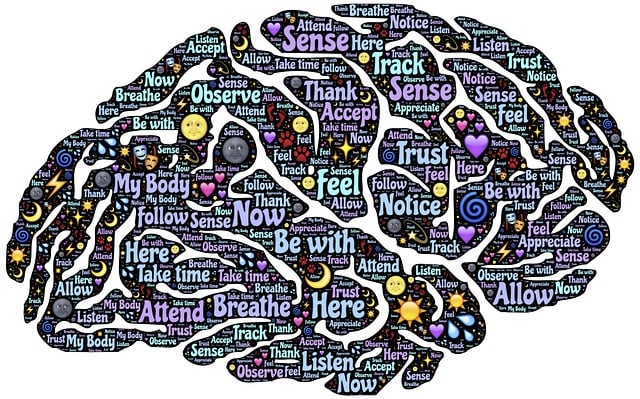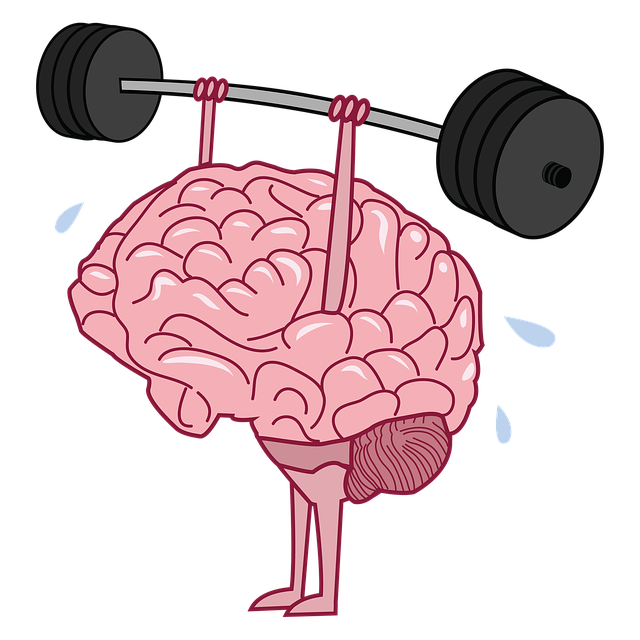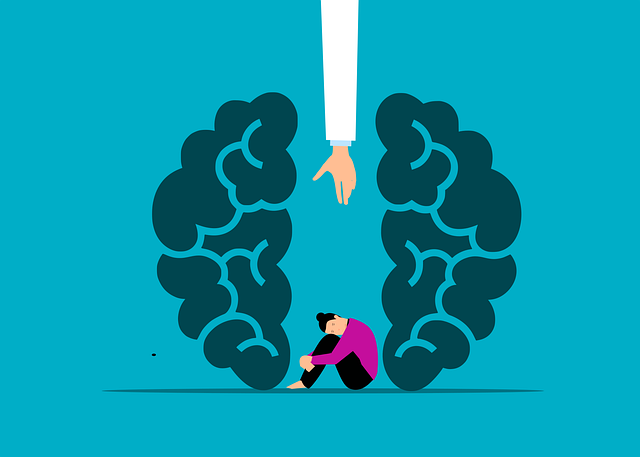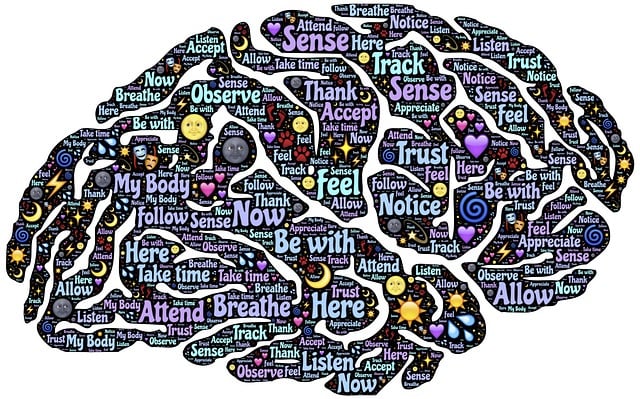Media portrayal of mental illness profoundly impacts public understanding, either promoting awareness or perpetuating stigma. Accurate and empathetic media depictions encourage help-seeking behaviors and support for affected individuals, especially in communities like Longmont where access to resources like Longmont Couples Counseling Therapy is vital. By showcasing diverse narratives and positive mental health representations, media can drive Mental Health Awareness, inspiring individuals to prioritize well-being through practices such as Mindfulness Meditation and Self-Care Routines. Collaborative efforts involving individuals with lived experiences, experts, and public awareness campaigns ensure authentic narratives that educate viewers about mental health conditions. Longmont Couples Counseling Therapy offers specialized guidance, reducing stigma by normalizing mental health conversations and fostering community empathy, ultimately transforming perceptions and empowering individuals and couples toward holistic mental wellness.
In today’s media landscape, the portrayal of mental illness can significantly impact public perception. This article delves into how media representation challenges and offers solutions for fostering understanding and empathy. We explore the effects of inaccurate portrayals on mental health stigma and discuss strategies for more authentic and compassionate depiction in popular culture. Furthermore, we highlight the role of Longmont Couples Counseling Therapy as a catalyst for positive change, emphasizing its impact on promoting mental wellness through specialized care.
- Understanding the Impact of Media Portrayal on Mental Health Perception
- Strategies for Accurate and Empathic Representation in Popular Culture
- The Role of Longmont Couples Counseling Therapy in Promoting Positive Change
Understanding the Impact of Media Portrayal on Mental Health Perception

The media’s portrayal of mental illness significantly influences public perception and understanding of these conditions. When depicted accurately and sensitively, media can foster empathy, reduce stigma, and encourage individuals to seek help. However, stereotypical or inaccurate representations can lead to further marginalization and hinder those affected from receiving the support they need. This is particularly crucial in communities like Longmont where access to mental health resources, such as Longmont Couples Counseling Therapy, plays a vital role in addressing these issues.
By presenting diverse narratives and promoting accurate mental health representation, media has the power to initiate meaningful conversations and drive Mental Health Awareness. Encouraging practices like Mindfulness Meditation and the development of Self-Care Routines for Better Mental Health can be showcased as proactive ways to manage and maintain psychological well-being. These positive portrayals can inspire individuals to prioritize their mental health and seek professional help when necessary, ultimately contributing to a healthier society.
Strategies for Accurate and Empathic Representation in Popular Culture

In recent years, there has been a growing awareness of the need for more accurate and empathetic representation of mental illness in popular culture. This shift is crucial, as media plays a significant role in shaping public perceptions and understanding of mental health issues. Longmont Couples Counseling Therapy has been at the forefront of this movement, advocating for more nuanced portrayals that reflect the diversity of human experiences. By integrating real-life stories and consulting with experts, creators can develop characters and narratives that not only entertain but also educate viewers about various mental health conditions.
One effective strategy is to involve individuals living with mental illness in the creative process through advisory roles or as contributors. This ensures authenticity and allows for a more nuanced portrayal of their experiences. Additionally, engaging in Public Awareness Campaigns Development can help dispel stereotypes and promote Mental Health Awareness. Burnout Prevention Strategies for Healthcare Providers are also essential, as they ensure that those depicting mental health professionals showcase realistic and empathetic interactions. These collaborative efforts contribute to a richer conversation around mental illness, fostering understanding and compassion within the broader community.
The Role of Longmont Couples Counseling Therapy in Promoting Positive Change

Longmont Couples Counseling Therapy plays a pivotal role in promoting positive change when it comes to mental wellness. Through specialized guidance and tailored exercise, such as Mental Wellness Journaling, therapists help individuals and couples navigate their emotional landscapes. This therapeutic approach fosters open communication, enhances understanding, and cultivates strategies to manage challenges collaboratively. By integrating Cultural Sensitivity in Mental Healthcare Practice, counselors create a safe space where diverse experiences are respected and unique needs are addressed.
Moreover, Longmont Couples Counseling Therapy contributes significantly to Mental Illness Stigma Reduction Efforts. By normalizing conversations about mental health, therapists encourage honest expressions of feelings and struggles. This collective approach not only alleviates the burden of isolation but also fosters empathy and understanding within communities. Ultimately, these practices aim to transform perceptions, promote support, and empower individuals and couples on their journeys towards holistic mental wellness.
Media portrayal plays a pivotal role in shaping public understanding of mental health. By adopting strategies that promote accurate and empathetic representation, such as those implemented by Longmont Couples Counseling Therapy, we can challenge stigmatization and foster a more compassionate society. These efforts are essential for creating an environment where individuals struggling with mental illness feel seen, heard, and supported. Through conscious creation of diverse, nuanced narratives, media has the power to revolutionize perceptions and improve access to care.
